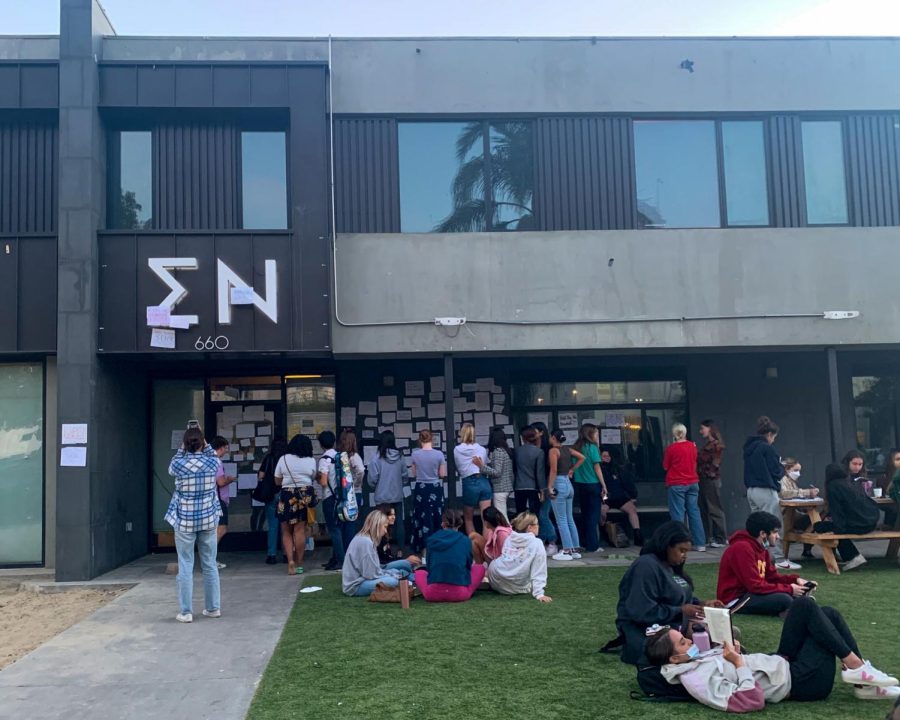Culture or Cult? Fraternities Under Fire for Recent Sexual Assault Allegations
Colleges across the country have suspended or removed institutions of Greek life due to a slew of issues pervading certain chapters. Issues include severe hazing, harassment, excessive drinking, drug abuse, sexual harassment and other forms of harmful behavior. More recently, the University of Southern California (USC) suspended their Sigma Nu chapter due to drug-related sexual assault allegations.
The suspension of this fraternity is not the first in the U.S. Other schools including University of Massachusetts Amherst, Cornell University, California State Northridge, University of Miami, San Diego State and others have all had their fair share of fraternity incidents requiring the suspension or even disbandment of certain chapters. The prevalence of sexual assault and extreme hazing tied to Greek life are at the core of the problem.
Many schools are struggling to keep Greek life under control. If fraternities cannot be completely disbanded, there should be a better way to oversee their conduct. All students, despite their Greek life affiliations, need to be held accountable for their actions.
In 2014, Armando Villa died after a California State Northridge (CSUN) Pi Kappa Phi retreat which required pledges to do a 14 mile hike in slip-on shoes with very little food or water. Today, much like USC, CSUN fraternities are well-acquainted with scandals including sexual assault allegations. Even I can think of a frat member that I personally knew from high school who repeatedly groomed and raped underage girls.
A Cornell fraternity member who was only 18 years old died from alcohol poisoning and was found in a ravine. UMass Amherst and SDSU have similar cases of death by alcohol poisoning in some fraternity chapters. Most of the recruitment processes involve drinking ridiculous amounts of alcohol and attempting dangerous challenges.
Many schools without Greek life, including Fordham, still have incidents of sexual assault. Harrassment, drug and alcohol abuse and rape perseveres despite a lack of Greek life, especially among sports teams. In athletics, there is still overwhelming pressure to belong and follow what peers are doing, even if it is not traditional hazing.
Brock Turner, a rapist and former Stanford University athlete, is a perfect example of poor accountability, having only received a six-month sentence after multiple eyewitnesses saw him rape an unconscious girl behind a dumpster. Students at schools like University of Nebraska-Lincoln and University of Southern California are fed up with their institutions’ protection of Greek life, holding protests to express their anger and desire for change.
The protests aim to eliminate toxic masculinity and sexual assault on college campuses. USC is allowing nonviolent protests to occur and is finally taking a stance on the issue. This is somewhat of an improvement, but it doesn’t take away from the need for accountability and better control. While most of these issues are magnified by fraternity culture, they do not always stem purely from Greek life.
The bigger issue at hand that needs to be addressed is toxic masculinity. Greek life is simply an outlet for these outdated stigmas. There is often societal pressure for men to be seen as tough, and in fraternity culture this translates into drinking copious amounts of alcohol and sexually harassing or assaulting women. This toxicity is the real problem and needs to be dealt with at the source by university administration and student bodies.
It is the responsibility of the administration to hold men partaking in these toxic behaviors accountable by not only siding with survivors of sexual assault but conducting thorough police investigations. Additionally, schools should consider severing financial ties with their Greek systems; the well-being of their students should be more important. Administrators can also work to discourage gender stereotyping among the student body through different programs.
By doing so, students won’t be categorized to a certain masculine or feminine group. Therefore, they should feel less pressured to follow toxic masculine and feminine behaviors. The student body should also stand up against these stereotypes and toxic behaviors. Our societal practices and standards need to change if Greek life is to continue.
Morgan Spillman, FCRH ’23, is a journalism major and communication and culture minor from Los Angeles, Calif.










































































































































































































